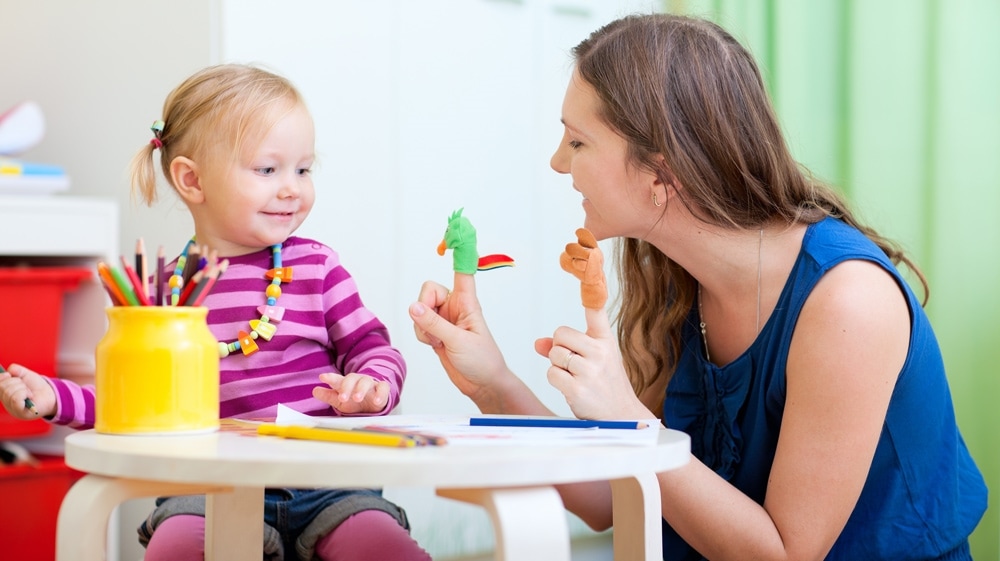What Discipline Tactics Work for Single Parents?
Managing discipline as a single parent? Start by setting clear rules and expectations, consistently reinforcing them with positive methods like behavior charts and rewards. Communication and active listening foster understanding and trust. Remember the power of modeling good behavior for your child’s growth. Seek guidance from supportive networks and tailor discipline to your child’s age. Being flexible and adaptable is key. These strategies set a strong foundation for your child’s well-being and development.
Key Takeaways
- Consistent boundaries and clear rules reduce confusion.
- Positive reinforcement boosts self-esteem and encourages good behavior.
- Active listening and open communication foster understanding.
- Tailor discipline to the child’s age for effectiveness.
- Seek support for personalized strategies and emotional well-being.
Establishing Clear Rules and Boundaries

To effectively manage behavior and promote a positive environment, single parents must establish clear rules and boundaries for their children. Open lines of parent-child communication are crucial in this process. Sit down with your child and explain the rules calmly and clearly. Use age-appropriate language and encourage questions to guarantee understanding.
Consistent boundaries are essential. Make sure rules are the same and consequences are fair across all situations. When rules are broken, follow through with appropriate consequences. Consistency helps children understand expectations and learn to respect boundaries. It also fosters a sense of security and stability.
Consequences should be reasonable and related to the misbehavior. Discuss these consequences with your child beforehand so they understand the outcomes of their actions. Be firm but fair when enforcing consequences. Remember, discipline is about teaching, not punishing.
Consistent Reinforcement of Expectations
Consistently reinforcing your expectations with your child is key to establishing a structured and nurturing environment where they can thrive. Setting clear behavior expectations and consistently following through with consequences when those expectations aren’t met helps your child understand boundaries and learn accountability.
By maintaining reinforcement consistency, you provide your child with a sense of predictability and security, which are vital for their emotional development.
Children thrive in environments where they know what’s expected of them and the consequences that follow both positive and negative behaviors. By implementing consistent consequences for actions, you teach your child about responsibility and help them understand the impact of their choices.
Positive Reinforcement Techniques

Encouraging your child’s positive behavior through rewards can be a powerful tool in shaping their actions. By acknowledging and praising good behavior, you’re reinforcing the likelihood of its recurrence.
Rewarding Good Behavior
Implementing a system of positive reinforcement can be a vital tool in encouraging your child’s good behavior as a single parent. Behavior charts and sticker rewards can be effective in showcasing progress and motivating your child.
By visually tracking their achievements, children can feel a sense of accomplishment, boosting their self-esteem. Praise plays an essential role in reinforcing positive behavior. Acknowledging your child’s efforts and specific good deeds helps them understand what actions are valued.
Incentives can further enhance the effectiveness of positive reinforcement. Offering small rewards for consistently good behavior can keep your child motivated and engaged in maintaining positive habits. These rewards can be simple, like extra playtime or choosing a family activity.
Encouraging Positive Choices
To foster positive choices in your child, consider utilizing a combination of praise, rewards, and incentives. By building trust through positive reinforcement, you can encourage responsible behavior in your child.
When your child makes a good decision or chooses a positive course of action, make sure to acknowledge and praise their behavior. This will reinforce their confidence and trust in their ability to make good choices.
In addition to praise, offering rewards or incentives can further motivate your child to continue making positive choices. Rewards can be in the form of extra playtime, a special treat, or a fun activity. By linking rewards to positive behavior, you’re reinforcing the idea that making good choices leads to positive outcomes.
Encouraging responsibility in your child involves setting clear expectations and boundaries. Communicate openly with your child about the importance of taking responsibility for their actions and choices. By fostering a sense of accountability, you’re helping your child develop important life skills that will benefit them in the long run.
Communication and Active Listening

As a single parent, fostering open communication and practicing active listening with your children can greatly strengthen your relationship and resolve conflicts effectively. Active listening involves truly paying attention to what your child is saying, showing empathy, and providing feedback to guarantee understanding. By creating a safe space for your child to express their thoughts and feelings, you build trust and encourage honest communication.
Open communication involves not only talking to your child but also actively listening to their responses without judgment. When your child feels heard and understood, they’re more likely to cooperate and follow your guidance. Encourage your child to express themselves by asking open-ended questions and showing genuine interest in their thoughts.
Time-Outs and Cooling-Off Periods
When it comes to discipline, implementing time-outs and cooling-off periods can be valuable tools for both you and your child.
Time-outs provide a chance for emotions to settle, allowing for clearer communication and understanding afterward.
Effective cooling-off strategies can help de-escalate tense situations and promote a calmer environment for resolving conflicts.
Time-Outs Benefits
Implementing time-outs can be an effective way to provide both you and your child with a valuable cooling-off period during moments of conflict or misbehavior. Time-outs serve as a form of behavior modification, allowing children to take a break and reflect on their actions. This pause can help them understand the consequences of their behavior and provide a chance for parental guidance on more appropriate ways to handle situations.
Research suggests that time-outs can be beneficial in teaching children self-regulation and impulse control. By giving them a moment to calm down and collect their thoughts, children can learn to manage their emotions better in the future.
As a single parent, utilizing time-outs can offer you a moment to de-escalate tensions and address the situation with a clearer mind. Remember that consistency and communication are key when implementing time-outs, ensuring that both you and your child understand the purpose behind this discipline tactic.
Effective Cooling-Off Strategies
To effectively utilize cooling-off strategies such as time-outs and cooling-off periods, consider the importance of providing both yourself and your child with a structured and constructive way to navigate moments of tension or conflict.
When implementing time-outs, remember that they aren’t only for your child’s benefit but also for your own. Self-care strategies play an essential role in maintaining parental self-regulation during challenging situations. Take a moment to breathe and center yourself before guiding your child through a time-out.
Emotional regulation is key during cooling-off periods. Model healthy coping techniques by demonstrating to your child how to manage emotions in a positive way. Utilize this time to reflect on the situation calmly and gather your thoughts before addressing the issue at hand.
Modeling Desired Behavior
Demonstrate the behavior you wish to see in your child by consistently embodying those qualities yourself. As a single parent, you play an important role in shaping your child’s behavior through your own actions and words.
Children often mimic the behaviors and attitudes they observe in their parents, making your role modeling essential in guiding them towards positive conduct.
By setting a good example, such as demonstrating patience, kindness, and respect in your interactions, you’re showing your child how to navigate challenging situations with grace. When faced with conflicts or obstacles, aim to handle them calmly and constructively, as this will teach your child valuable problem-solving skills.
Research indicates that children raised by parents who model desired behaviors exhibit improved social skills, emotional regulation, and overall well-being.
Remember that you’re your child’s first and most influential role model. By consistently embodying the behavior you wish to see in your child, you’re laying a strong foundation for their future growth and development.
Seeking Support and Guidance
Consider reaching out for support and guidance from trusted friends, family members, or professionals to navigate the challenges of single parenthood effectively. Engaging with online forums and community groups can provide you with a sense of community and valuable insights from others who may be going through similar experiences. These platforms offer a space for you to share your thoughts, concerns, and triumphs, fostering a supportive environment.
Additionally, seeking counseling or therapy support can offer you personalized strategies to manage stress, improve communication with your child, and enhance your overall well-being. A trained professional can equip you with coping mechanisms, parenting techniques, and emotional support tailored to your specific needs as a single parent.
Tailoring Discipline to Child’s Age

As your child grows and develops, it’s important to adapt your discipline approach to their age and stage of development. Implementing age-appropriate discipline strategies tailored to your child’s individual needs is vital for effective parenting. Different parenting styles may influence how discipline is applied, but disciplinary consistency is key regardless of the approach you choose.
For younger children, such as toddlers and preschoolers, focusing on positive reinforcement and setting clear boundaries can be effective. Simple explanations and redirection often work well at this age.
As children enter their school-age years, they begin to understand more complex concepts and consequences. Using logical consequences and reasoning can be beneficial during this stage.
Teenagers require a more nuanced approach that involves open communication and active listening. Encouraging autonomy while maintaining boundaries is essential.
Flexibility and Adaptability in Approach
Being a single parent requires you to be adaptable and flexible in your disciplinary approach to effectively meet the changing needs of your child. Parenting challenges can vary greatly, and what works for one child may not work for another. This is where your creativity comes into play – finding unique solutions tailored to your child.
Parenting styles aren’t one-size-fits-all; they require individualized approaches that evolve over time.
When faced with challenging behaviors, consider the root cause and adjust your disciplinary tactics accordingly. Stay open to trying new strategies and be willing to adapt as your child grows and changes.
Your ability to be flexible in your approach will help you navigate the ups and downs of single parenthood more effectively.
Frequently Asked Questions
How Can Single Parents Handle Discipline Disagreements With Co-Parents?
When handling discipline disagreements with co-parents, aim for open communication and compromise. Seek conflict resolution by discussing shared goals for your child’s behavior. Remember, cooperation and understanding are key in co-parenting successfully.
What Are Effective Ways to Manage Discipline in Blended Families?
Effective discipline in blended families requires clear communication, consistent rules, and flexibility. Establishing boundaries together can help navigate challenges. Stay open to adjustments and prioritize unity to create a harmonious environment for all family members.
Is It Beneficial for Single Parents to Seek Professional Advice on Discipline?
Seeking professional advice on discipline as a single parent can be beneficial. Parenting workshops, counseling, online resources, and support groups offer valuable guidance and strategies to navigate challenges effectively. You deserve support in raising your child.
How Can Single Parents Balance Discipline With Nurturing Their Child?
Balancing discipline and nurturing your child is essential. Remember, positive reinforcement, consistency, setting clear boundaries, and open communication are key. Show love, but also provide structure. Seek support when needed; you’re doing an amazing job!
Are There Specific Strategies for Disciplining Children With Special Needs?
When disciplining children with special needs, remember to use individualized approaches tailored to their unique requirements. Positive reinforcement can be more effective than punitive measures. Consistency and open communication are key in maintaining a supportive environment.
Conclusion
To sum up, finding effective discipline tactics as a single parent can be challenging, but with clear rules, consistent reinforcement, positive techniques, and open communication, you can navigate this journey successfully.
Remember to tailor your approach to your child’s age, seek support when needed, and always lead by example.
Stay flexible and adaptable, and trust in your ability to guide your child with love and understanding. You’ve got this!

Chad Adan Kace, a young dad from Vermont, shares his parenting journey with a touch of humor and lots of love. Father to a lively baby, he explores the joys and challenges of fatherhood through his stories.







